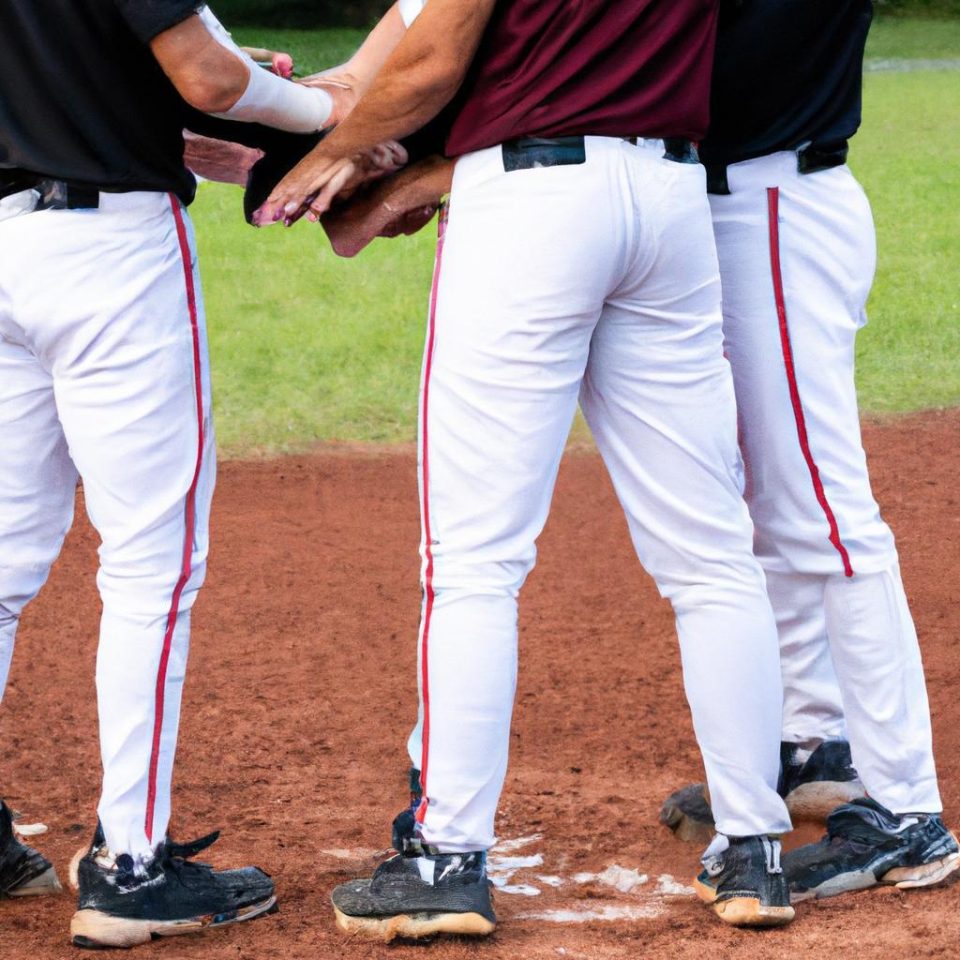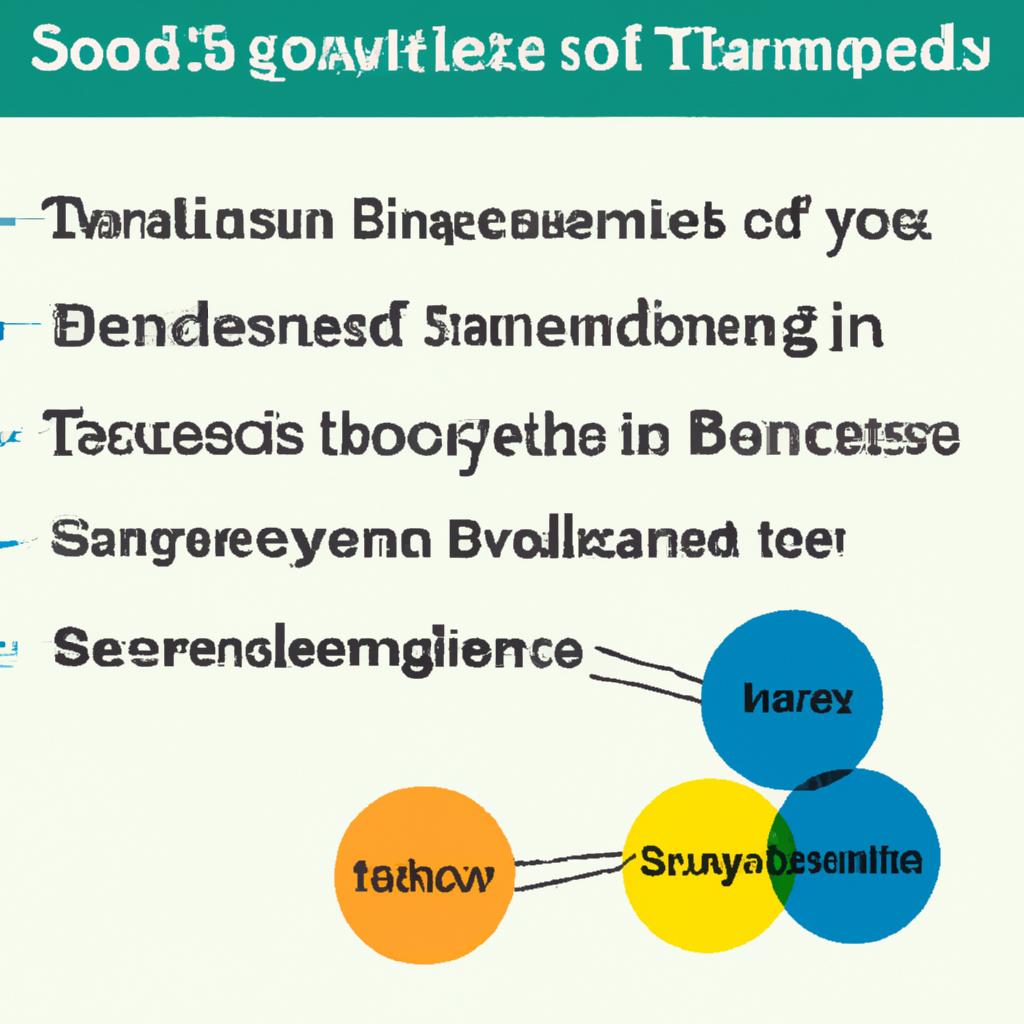Beyond the Game: How Team Sports Foster Camaraderie and Essential Teamwork Skills

In a world increasingly driven by individual achievements and personal accolades, the power of collective experience often takes a backseat. Yet, nestled within the vibrant chaos of team sports lies a profound lesson in unity and collaboration that transcends the game itself. “Beyond the Game: How Team Sports Foster Camaraderie and Essential Teamwork Skills” invites readers to explore the intricate tapestry woven by athletes as they navigate the exhilarating highs and challenging lows of shared pursuit. From the basketball court to the soccer field, the camaraderie developed in these dynamic environments not only shapes competitive spirit but also cultivates essential skills that resonate far beyond the whistle’s final blow. Join us as we delve into the profound impact of team sports on personal development, relationship building, and the undeniable lessons of cooperation and trust that can be applied in every facet of life.
Understanding the Bonds: The Psychological Impact of Team Sports on Relationships
Engaging in team sports creates a unique environment where individuals come together, not just to compete but to forge meaningful connections. As players navigate wins and losses, they experience a spectrum of emotions, which can significantly impact interpersonal relationships. These shared experiences become the bedrock for developing essential social skills, such as communication, trust, and collaboration. Moreover, the constant need to rely on one another fosters a sense of accountability, enhancing the players’ commitment to their teammates both on and off the field.
The psychological benefits extend beyond the immediate circle of teammates, often influencing players’ relationships with family and friends. By learning to navigate conflict and celebrate successes together, athletes often develop stronger emotional intelligence. Key factors that contribute to this growth include:
- Empathy: Understanding and sharing the feelings of others enhances bonds.
- Shared Goals: Working towards a common objective cultivates unity and purpose.
- Resilience: Overcoming challenges as a group strengthens relationships through adversity.
As teams evolve, they create a synergistic atmosphere where individual strengths are recognized and appreciated. This dynamism not only aids in developing critical teamwork skills but also transforms group dynamics into lifelong friendships. The table below illustrates how various psychological benefits manifest in personal relationships as a result of team sports participation.
| Psychological Benefit | Impact on Relationships |
|---|---|
| Improved Communication | Enhances understanding and reduces conflicts. |
| Team Cohesion | Strengthens emotional connections. |
| Increased Trust | Deepens bonds and fosters loyalty. |

Cultivating Collaboration: Strategies for Developing Effective Teamwork Skills Through Sports
Participating in team sports provides a dynamic environment for individuals to hone their collaboration skills. **Active communication** is essential, as players must relay information quickly and effectively during the heat of the game. This practice encourages participants to articulate their thoughts clearly and listen actively to teammates, fostering a sense of shared purpose. Engaging in team sports also cultivates **trust** among members, as success hinges on everyone’s ability to perform their roles effectively. The experience of relying on one another during challenging moments helps to build interpersonal bonds, creating a solid foundation for future teamwork both on and off the field.
Moreover, team sports serve as a platform for learning vital conflict resolution strategies. With differing opinions and competitive spirits often clashing, athletes quickly discover the importance of **compromise** and **collaboration** when facing challenges. Participating in training sessions and games encourages players to navigate their differences, promoting resilience and adaptability. They learn to appreciate diverse perspectives, which can lead to creative problem-solving and innovative strategies. To illustrate these interactions, consider the following comparisons of key teamwork skills developed through sports versus traditional team settings:
| Skill | In Team Sports | In Traditional Settings |
|---|---|---|
| Communication | In-game calls and strategic discussions | Meetings and emails |
| Trust | Building relationships over time | |
| Conflict Resolution | Immediate negotiation during gameplay | Formal discussions or mediation |

From the Field to Real Life: Transferring Team Dynamics to Personal and Professional Success
Team sports offer more than just a competitive edge; they serve as a fertile training ground for essential life skills. When players come together to achieve a common goal, they cultivate a deep sense of **camaraderie** that transcends the game itself. This environment fosters qualities such as **trust**, **communication**, and **conflict resolution**, which are transferable to both personal relationships and the professional realm. By learning to collaborate effectively under pressure, athletes become adept at navigating challenges, whether on the field or in the boardroom. Such experiences forge bonds that last a lifetime and create a strong foundation for both personal and career development.
The dynamics honed in team sports can be articulated through several key benefits that enhance personal and professional interactions:
| Benefit | Description |
|---|---|
| Adaptability | Learning to adjust strategies based on opponents and circumstances strengthens resilience. |
| Leadership | Opportunities to lead fosters responsibility and decision-making skills. |
| Empathy | Understanding diverse perspectives among teammates nurtures emotional intelligence. |
| Goal Setting | Collaborating on objectives teaches the importance of planning and perseverance. |
By leveraging these experiences, individuals can achieve a more profound success in their careers and personal lives, illustrating how the lessons learned on the field can manifest in various aspects of life. The integration of teamwork into everyday scenarios enables a mindset geared towards **collaboration**, leading to fulfilling relationships and career advancements.
Closing Remarks
As the final whistle blows and the scoreboard fades into memory, the true essence of team sports reveals itself—not just in the victories etched in our minds, but in the bonds formed and the lessons learned beyond the confines of the field. Through shared hardships and triumphs, every pass, every cheer, and every setback becomes a stepping stone toward personal growth and collective strength.
it’s not just about the game; it’s about the camaraderie that blossoms in the heat of competition and the invaluable teamwork skills that players carry with them into all facets of life. Whether you’re donning a jersey or cheering from the sidelines, the spirit of teamwork nurtures resilience, encourages empathy, and fosters a sense of belonging that transcends age or skill level.
As we step away from the arena, let’s carry forward the lessons of collaboration and friendship, reminding ourselves that in both sports and life, the journey is often more rewarding than the destination. So, lace up your shoes, gather your teammates, and embrace the power of togetherness—because in unity, there is strength, and in teamwork, there is always room for growth.





